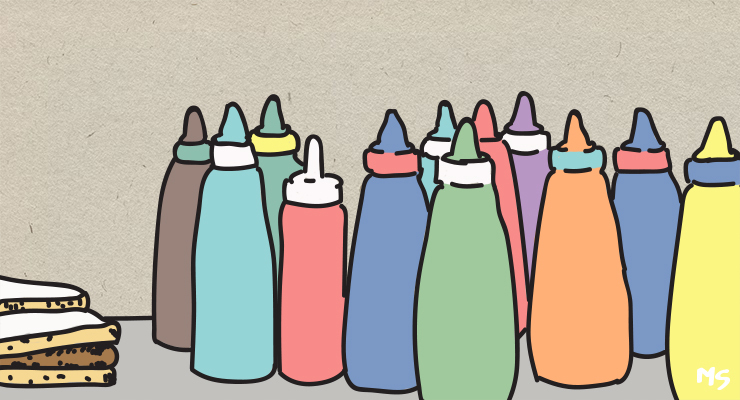
With late campaign polls suggesting a tightening race and unprecedented support for minor parties and independents, voters in many seats are having to think increasingly carefully about the tactical implications of their vote.
Tactical voting has long been a familiar concept in the United Kingdom and Canada, where first-past-the-post often requires voters to frame their choice around who they would like to keep out rather than let in.
In straightforward two-party races, Australia’s preferential voting system gives voters the assurance they can support a minor party without losing their say in the result of the main race.
But where the picture is less clear, voters must consider which major party they would prefer to govern, whether they would rather it did so in majority or minority, and which candidate is best placed to keep the other side out.
In most of the teal independent seats, Labor voters would do better to abandon their own party for the sake of giving the independent a lower bar to clear, since independents will assuredly receive most preferences from Labor than vice versa.
An exception can be made for North Sydney, the one such seat that could be conceivably won by Labor. While a Labor vote would increase the risk of independent Kylea Tink dropping out and reelecting Liberal member Trent Zimmerman on her preferences, it might be considered worth the risk if it helped secure Labor a majority in its own right.
Still trickier is the dilemma facing Labor voters in the Australian Capital Territory, where the party’s interests would be maximised if it lost a very specific share of its Senate vote to independent David Pocock.
If Julia Gillard’s endorsement of Labor incumbent Katy Gallagher earlier this week is any guide, Labor is concerned that Pocock will poach so many votes from her that she, rather than Liberal Senator Zed Seselja, will be the one to lose her seat.
Both the teal independents and the Greens are expressly hoping to gain the lower house balance of power to leverage their favoured outcomes, which in the Greens’ case consists of a seven-point list of demands outlined by Adam Bandt at the party’s campaign launch on Monday.
This pointedly took place in inner Brisbane, where the Greens hope to gain the seats they need.
One of these is Labor-held Griffith, where Terri Butler’s status as a rising star of the Labor Left is not sparing her from a determined Greens effort to unseat her.
Butler has responded to the threat with social media posts reiterating the dubious claim that “Morrison stays PM” should her own defeat cause Labor to fall short of 76 seats.
Interestingly, similar noises have been heard from Justine Elliot, whose seat of Richmond encompasses the Greens hotspot around Byron Bay, and who faces a strong challenge from comedian Mandy Nolan.
Progressive voters in these seats must decide whether they like their Labor governments secure or kept honest by a bolshie crossbench, with due regard to the fact that such arrangements can prove limiting to a government’s life expectancy.
Labor has long complained that the Greens poaching their own seats does nothing to advance the progressive cause, but this time at least its targeting of inner Brisbane brings into view two on the other side of the divide.
Should the inner-urban backlash against the Liberals power swings of greater than 4.9% against Trevor Evans in Brisbane and 6.0% against Julian Simmonds in Ryan, the Greens will emerge the beneficiary if they can close gaps of 1.6% and 3.3% against Labor compared with the 2019 result.
A similar but less discussed prospect is the Melbourne seat of Higgins, which Liberal member Katie Allen would lose on a swing of 3.9%, and where a strong Labor candidate landed only 1.9% clear of the Greens in 2019.
In these cases, voters on the left can probably feel safe following their conscience.
On the few occasions when Greens candidates have faced off against Liberals at the final count, around 83% of Labor voters have sent them their preferences, just as Greens voters have done to Labor in comparable seats.
In any case where a Liberal member might lose such a seat to one of the two parties, they would almost assuredly also lose it to the other.
DISCLOSURE: William Bowe is conducting paid consultancy during the federal election campaign for Climate 200, which is helping fund independent candidates who support policies to promote renewable energy and mitigate climate change.








Action is required on climate and a Federal ICAC is desperately needed. The only way to secure those two things is to ensure that Morrison’s government is removed on Saturday. This is by far the most important election we have had for decades. Putting the certain economic collapse that inaction on Climate will bring about; democracy is in the cross hairs. We do not want to become another US, which is very nearly a failed state. ICAC now!
“with due regard to the fact that such arrangements can prove limiting to a government’s life expectancy.”
Says who? There’s no inherent reason a multi-party government should be unstable – plenty of successful examples from round the world.
And most if not all of those multi-party governments are elected in proportional representation systems in which it is almost impossible to form a majority in your own right.
For what it’s worth, my perceptions of most ‘teals’ is that they’re washed out Liberals.
When push comes to shove their preferences would flow to the Liberal Party rather than “change the system they want to change”?
“ In any case where a Liberal member might lose such a seat to one of the two parties, they would almost assuredly also lose it to the other.”
Counter-example of VIC seat of Prahran, when first narrowly one by the Greens on ALP preferences in 2014. Am I correct in remembering that the Lib-ALP preference count also conducted showed that Labor would have narrowly lost had they featured in the final two?